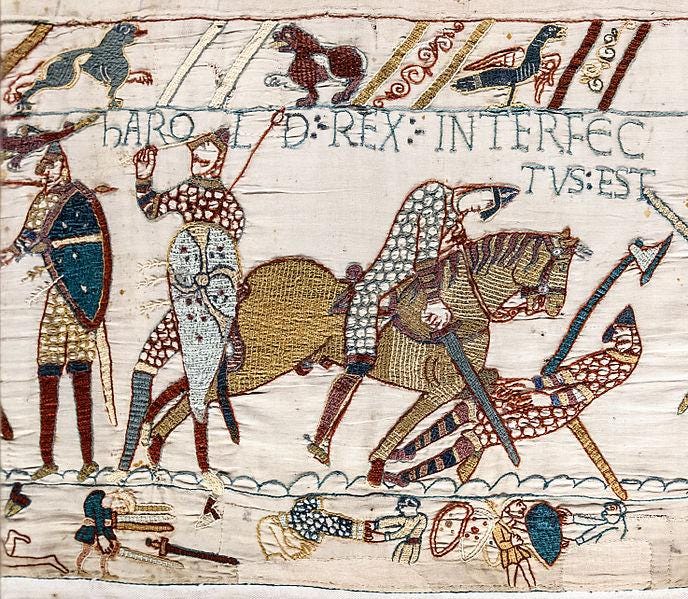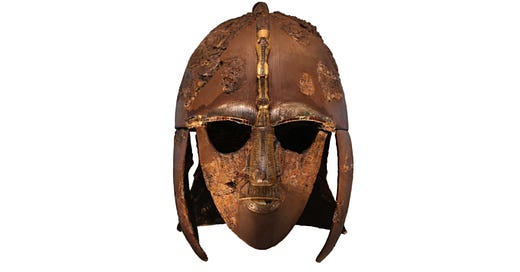The Anglo Saxon Kings of England: The History of the Before (Part One)
English History, as it is taught to schoolchildren and as has been noted elsewhere, starts invariably with the Norman Conquest. It is a neat dividing line, an upheaval and a reset which allows for a convenient line in the sand.
After the Norman Conquest, which began and effectively ended with the Battle of Hastings in 1066, England had a new ruling class. The Normans brought with them giant stone castles, strange ways of speaking, and catastrophic haircuts.
From the Normans came the Plantagenet kings of England, and centuries of history where England and France are at loggerheads, here merged, here conquered, here an implacable enemy. This is the history of England in the Middle Ages, and this is the direction that most taught history faces.

But what of the before? Most with an interest in English history will know the name of the Saxon king killed at the Battle of Hastings, with an arrow through the eye as the Bayeux Tapestry has it. Harold Godwinson, who doesn’t even sound like a king with his last name, is dismissed as some hairy throwback to a culture which died with the coming of the Normans. No need to focus on them, that’s all over now.
But the Saxon culture endured. Much of what is now English comes from these Germanic and Scandinavian peoples, and much of what it means to be English is intrinsically entangled with their culture. They shaped the British countryside, they literally are the first English people.
They had their own kingdoms before the Normans, and they had great kings and accomplished great things. But they would never see their royal line restored: Harold’s death in 1066 was the end of an era.
What is this history? Who were the kings of the fragmented kingdoms that jostled up against each other across the British Isles, stretching right back to the departure of the Roman Empire? How did they forge a country from what remained?
Keep reading with a 7-day free trial
Subscribe to AllThatHistory Weekly to keep reading this post and get 7 days of free access to the full post archives.





